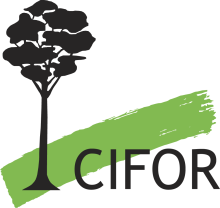Resource information
This paper discusses how a participatory method to facilitate thinking about future scenarios can help change the way forest communities and local governments interact. It reviews a growing body of literature on future scenarios and shares first-hand experiences in forest communities in the northern Bolivian Amazon and the central provinces of Vietnam. This paper finds that under the right conditions, the use of future scenarios:
allows forest communities to: collaborate more effectively with local governments, assume better responsibilities when given control over forests under devolution schemes and to become self-organised in order to benefit from the opportunities of communal control over forests
helps communities to think about dependency, vulnerabilities and ways to prepare for the future. The methods develop organisational capacity and encourage internal democratic processes and planning. Community leaders become more vocal and assertive in meetings with local government, and marginalised groups within communities, such as women or the poorest segments, make their voices heard.
However, the methods are less effective when facilitation skills are not available or where government or other interests are threatened by local constituents. Future scenarios are not without their pitfalls and do not work in all situations, but given the appropriate context they can create “break-through moments” that improve collaboration between communities and local officials. Key concluding points are:
while forest devolution and government decentralisation trends in the tropics continue, forest communities are frequently unprepared for their new responsibilities and lack democratic decision making practices and capacity within their organisational structures
community forest management is viable only when communities can negotiate effectively with government, private enterprise and NGOs, and are accepted as equal partners in negotiations and decision making about the forest
future scenarios methods are promising means for assisting forest communities to find common ground, define collective interests, develop the skills and gain the experience they need to take proactive roles and benefit from forest devolution
participatory methods such as future scenarios alone are not sufficient to empower marginalised or remote communities, but they can help prepare communities for the challenges and opportunities of forest devolution.



